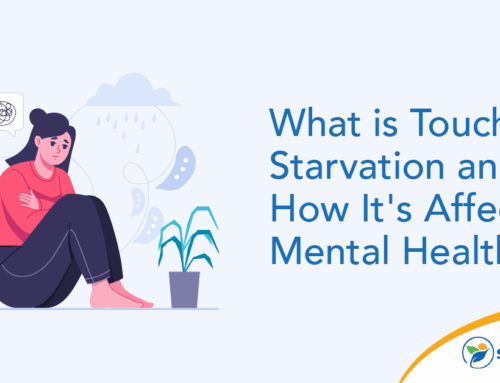In the messy mix of family life, how important is birth order, and is there truth to the phenomenon of middle children being overshadowed and overlooked? As it turns out, birth order psychology is real — and birth order can be significant in the dynamics of siblings and the family. Psychologists have identified a concept called middle child syndrome that can be useful in understanding the perception middle children often have when it comes to feelings of inadequacy and unimportance within the family unit.
Defining Middle Child Syndrome
Middle child syndrome is a colloquial term used to describe the unique challenges faced by children who find themselves sandwiched between siblings. It encompasses feelings of neglect and invisibility and a sense of being overshadowed by the achievements of the older sibling and the indulgences bestowed upon the youngest.
Psychology doesn’t recognize a clinical definition of middle child syndrome. So, while birth order can influence personality development, the term itself doesn’t correspond to a specific diagnosis or syndrome in psychological literature. Instead, it’s a popular concept used to describe perceived traits or challenges experienced by middle-born children.
Psychologists emphasize the importance of considering individual differences, family dynamics and various environmental factors when understanding a person’s development. While birth order might play a role in shaping personality traits, such as adaptability or independence, it’s only one of many factors at play.
Often dismissed as typical sibling rivalry, middle child syndrome lies nestled between the complicated folds of the family. Unraveling this psychological phenomenon may help foster a deeper understanding of middle-born children’s psyche and their complex mix of emotions and experiences.
Characteristics and Behaviors of Middle Children
While no cookie-cutter profile fits every middle child, children sandwiched between older and younger siblings tend to share certain traits. Middle child characteristics include:
- Adaptability. Middle children often learn to adapt to various situations and environments in ways their siblings may not. This may be because they must navigate their position between older and younger brothers and sisters.
- Diplomacy. Growing up in a dynamic family setting, middle children frequently develop strong negotiation skills and diplomatic tendencies. They mediate conflicts and foster compromise.
- Empathy. Having to understand and relate to the perspectives of older and younger siblings, middle children often possess a heightened sense of empathy and understanding toward others.
- Independence. Feeling somewhat overlooked in the family hierarchy, middle children often cultivate a sense of independence from an early age. They carve out their identities distinct from their siblings.
- Peacemaking skills. Middle children often act as peacemakers within the family. They strive to maintain harmony and cohesion among siblings and other family members.
- Resilience. Despite facing challenges, such as feeling overlooked or misunderstood, middle children often develop resilience and a strong sense of self. They’re capable of navigating life’s ups and downs with grace.
These characteristics contribute to the unique personality traits often associated with middle children, shaping their interactions and experiences within their families and serving them throughout their lives.
Psychological and Emotional Impacts
Middle child syndrome can have significant effects on an individual’s emotional and psychological well-being. Research indicates that middle children may be up to 33% more likely than older siblings to engage in delinquent behavior. Growing up between older and younger siblings, middle children often feel invisible, neglected and unappreciated, and many grapple with identity ambiguity, all of which can impact their mental health in various ways.
One primary emotional consequence of middle child syndrome is a heightened sense of loneliness or isolation. Feeling overshadowed by the accomplishments of the eldest and the attention lavished on the youngest, middle children may struggle to find their place within the family unit, leading to feelings of alienation and disconnection.
Psychologically, middle children may experience identity issues and low self-esteem. As they (and others, including parents) constantly compare themselves to their siblings, they may struggle to establish a clear sense of self and purpose. This can manifest in a lack of confidence and difficulty asserting their needs and desires.
Moreover, middle children may develop resentment or bitterness toward their siblings or parents, particularly if they perceive themselves as unfairly treated or overlooked. These unresolved feelings of anger or frustration can contribute to internalized stress and may impact their relationships with family members and peers.
However, middle child syndrome isn’t solely characterized by negative outcomes. Many middle children develop resilience and adaptability as a result of their experiences. They learn to navigate complex social dynamics, hone their interpersonal skills and become adept at finding creative solutions to interpersonal conflicts.
Addressing and Overcoming Middle Child Syndrome
Parents play a crucial role in supporting the emotional and psychological well-being of all their kids, including their middle children. Here are some strategies parents can employ to help their middle children thrive:
- Validate their feelings. Acknowledge and validate the emotions of the middle child, letting them know their feelings are heard and understood.
- Give them individual attention. Set aside one-on-one time with each child, including the middle child, to ensure they feel valued and appreciated.
- Celebrate their achievements. Recognize and celebrate their accomplishments, no matter how big or small, to boost their confidence and self-esteem.
- Encourage their independence. Foster independence by allowing them to make decisions and take on responsibilities appropriate for their age.
- Encourage bonding between siblings. Facilitate positive sibling interactions, and encourage activities that promote bonding and amity among siblings.
- Keep lines of communication open. Create an environment where open communication is encouraged, allowing middle children to express their thoughts, concerns and needs freely.
By implementing these strategies, parents can help mitigate the effects of middle child syndrome and create a nurturing and supportive environment where their middle children can thrive emotionally and psychologically.
When Middle Children Need Help
Are middle children fated to be unhappy and maladapted? No — not by any means. Middle child syndrome can be overcome.
By fostering a supportive environment, acknowledging their unique strengths and validating their emotions, parents can help middle children develop resilience and thrive. Encouraging open communication, providing individual attention and celebrating the middle child’s achievements can help mitigate feelings of neglect or invisibility. Moreover, providing opportunities for middle children to assert themselves, build confidence and pursue their interests can empower them to navigate their place within the family and society.
Middle children struggling with anxiety, depression, feelings of isolation or loneliness and other mental health concerns aren’t alone. If you or a loved one needs help, reach out to Sunlight Recovery for counseling and recovery services delivered by a caring team of counselors.







